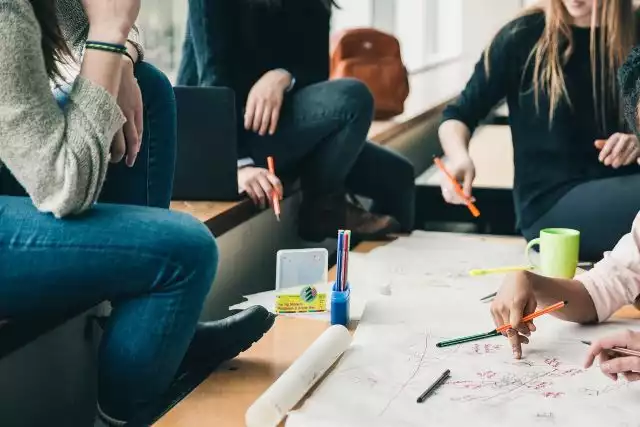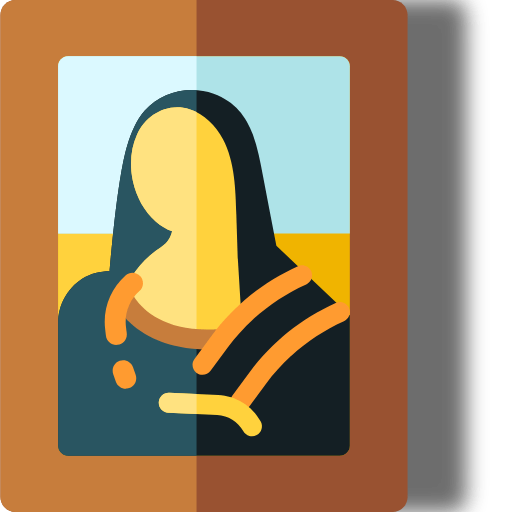Does A.I. Really Encourage Cheating in Schools?

A study by the Center for Democracy and Technology found that “a majority of teachers still report that generative AI has made them more distrustful of whether their students’ work is actually theirs.” Such suspicions have been paired with real questions about the efficacy of A.I.-detection tools, including one concerning finding that showed A.I.
Colleges tend to change slowly, even if education patterns go and come. I occasionally ask yourself if the doctrinaire push in today’s colleges, the extreme battles over how to educate history or math, the censorious book restrictions in some states, come from a cumulative fear that the knowledge-retention component of college may currently be outdated. Because it’s hard to warrant why kids ought to find out days and vocabulary words and the like, we have actually discreetly changed the objective of school to instructing them what to think and exactly how to go through life as a great person.
. A collection of guidelines on the usage of Turnitin, which was recently released by the Facility for Teaching Excellence at the College of Kansas, cautioned educators versus making “fast judgments” based on the business’s software and advised that educators rather “take a few more actions to collect info,” including contrasting previous examples of the student’s job, offering 2nd possibilities, and talking to the pupil. When I was in high school, graphing calculators were criticized for trainee dishonesty. If a trainee is attempting to show that he comprehends exactly how to solve a difficult mathematics problem that entails some multiplication, does the usage of a calculator indicate that the trainee is cheating? If a student checked out a collection archive to research what happened in the week after D Day, spooled some microfiche into an ancient maker, and dutifully jotted down notes, we would likely believe extra highly of that effort than if the student discovered the very same short article in a Google search, and definitely much more so than if he paraphrased some Wikipedia editor’s analysis of that article.
Viewpoints in education and learning, generally, action extremely promptly and oftentimes in a reactionary method. Yet the real execution of any kind of agreement can take decades to finish. This inadequacy can be harmful– it’s taken far also lengthy to eliminate phones from schools, for example– but it also allows for little panics like the current one around large-language-model disloyalty. I do not believe A.I. urges unfaithful in some revolutionary method, and I think of any kind of surge in plagiarism could have more to do with the remarkable stress of college admissions and the extremely competitive ambience in many high schools. Until that modifications, some population of children will convert any kind of brand-new app into a cheating tool, academic technology will certainly market blockers, and the cycle will certainly simply repeat itself. It doesn’t need to be in this manner. The A.I.-cheating panic offers us a possibility to reëmphasize the work-habit part of education and to ignore insurance claims that guides that children review are in some way hazardous or that just one variation of background can be taught. This, it should be claimed, is not so different from the manner in which hundreds of educators across the country currently consider their jobs, however the work part of school has actually become even more gauche than it made use of to be, with institutions throughout the nation removing research and concentrating more on developing a pupil’s love of a subject or the implied national politics of an educational program. A little revanchism, such as in-class essays written with a paper and book primary and center institution, could go a lengthy means. The lesson is almost always the real doing of the lesson, not the realities that are found out. ♦.
Right here’s what I think is occurring in schools with ChatGPT: educators are most likely a little extremely dubious of trainees, in part due to the fact that they have been provided devices to catch cheaters. Those panoptic devices have likely frightened some students right, however cheats are going to cheat. When I was in high school, graphing calculators were criticized for student dishonesty.
Under this logic, institution isn’t regarding producing new scholarship or answering concerns appropriately– it has to do with showing proper job routines. A young adult who takes the time to go into a collection is most likely to create the types of work behaviors that will allow him to discover going along with bits of info that could be beneficial in developing a novel, a formula, or a persuading debate. Alloting the noticeable violation of deceit, the problem with disloyalty isn’t so much that the pupil avoids over the process of clarifying what they learned– it’s that they deny themselves of the time-consuming labor of actually having actually reviewed the book, type out the sentences, and think through the timely.
The scenario advises me of the problem with sports-gambling applications. Gambling, like plagiarism, isn’t new. If you stick a hundred people that have actually never placed a wager in their lives in a casino site, a small number of them will certainly come back the following day, and the next, and the following. The remainder will either never ever wager once again or gamble only periodically and in a liable way. Disloyalty in college strikes me as a similar phenomenon– possibly it’s true that the majority of youngsters take part in a little bit of underhanded schoolwork, but some portion of youngsters never will and much more likely do so just in the most insignificant (or trying) scenarios. Technology does change the experience; it can motivate edge cases to begin tossing dice at a craps table or asking ChatGPT to compose a paper. For the many component, it’s not why grownups gamble on sports or why children cheat at school. And just as Wikipedia didn’t spoil the written word– and likely deepened the study of numerous trainee papers by simplifying the introductory task of learning more about a topic– the five-paragraph essay will certainly endure large language designs.
This past spring, Turnitin, a company that makes anti-cheating tools to find using A.I. in student documents, released its findings based on more than 2 hundred million samples assessed by its software program. 3 percent of papers had been essentially entirely created by A.I. and about 10 per cent displayed some traces of A.I. It’s never a fantastic concept to rely upon information that a for-profit business releases concerning its own product, however these numbers do not suggest some epidemic of unfaithful. Other research study has revealed that there hasn’t been a substantial increase in pupil plagiarism because the unveiling and mass popularization of large language models such as ChatGPT. Students seem to cheat a whole lot, usually– approximately seventy percent of pupils reported a minimum of one instance of disloyalty in the past month– yet they cheated at the very same prices prior to the advent of A.I
Students appear to rip off a lot, normally– up to seventy per cent of students reported at least one instance of disloyalty in the past month– however they ripped off at the very same rates prior to the development of A.I
In STEM topics, the lines are a little more clear. If a pupil just looks into a next-door neighbor’s shoulder and writes down the exact same response, most individuals agree that’s dishonesty. Yet if a pupil is attempting to confirm that he understands how to fix a difficult math issue that includes some multiplication, does the use of a calculator mean that the pupil is cheating? He is not being checked on whether he knows exactly how to multiply or not, so why waste time and possibly introduce negligent errors? I do not assume that having ChatGPT create a paper coincides thing as using a calculator for more routine and elementary jobs within a larger math trouble, but it’s worth asking why we feel in different ways concerning the automation of study and the written word. Also in the fine arts, appreciators and patrons have actually long approved that the musician does not need to actually perform each brushstroke, construct every sculpture, or build all a large installation. Small militaries of uncredited aides have their hands around the works of Andy Warhol, Damien Hirst, and Jeff Koons, which has actually kicked up periodic controversies, yet inadequate to end the technique. Would we think less of these musicians if an equipment just did every one of the assistants’ job?
These inquiries are abstract and absurd, yet they additionally mirror the arbitrary method which we consider what constitutes cheating and what does not. Beyond blatant acts of plagiarism, the line between disloyalty and not cheating in the humanities appears to rely upon the amount of time it takes to finish a task. If a student visited a collection archive to research what occurred in the week after D Day, spooled some microfiche right into an old equipment, and dutifully jotted down notes, we would likely believe more very of that effort than if the student located the exact same write-up in a Google search, and absolutely a lot more so than if he reworded some Wikipedia editor’s analysis of that post.
The thrill to address A.I. dishonesty and the myriad academic tools that have actually been developed and marketed to schools across the country increase a tertiary, and far more fascinating, question than whether or not the composed word will certainly endure. When we think of trainees’ job, where do we draw a line in between what has gotten up of their establishing mind and what has not?
For my columns throughout the back-to-school period, I assumed it would serve to review the state of public education in America. This collection will certainly be similar to the one I created on parenting a couple of months back in that it will be wide-ranging in subject, so please bear with me.
. What has actually enhanced is the variety of instructors and adults who seem convinced that all the children are ripping off. A research study by the Center for Freedom and Technology located that “a majority of instructors still report that generative AI has made them much more distrustful of whether their pupils’ work is really theirs.” Such uncertainties have actually been coupled with genuine questions regarding the efficacy of A.I.-detection devices, including one concerning finding that revealed A.I. detectors were most likely to flag the writing of non-native English speakers. This unpredictability, in addition to the failure of numerous institution areas to execute a thorough and clear A.I. policy, has actually caused one more layer of dispute amongst instructors concerning how to deal with instances of claimed cheating. A collection of guidelines on making use of Turnitin, which was lately launched by the Center for Training Quality at the University of Kansas, cautioned teachers versus making “fast judgments” based upon the firm’s software program and recommended that educators instead “take a couple of more steps to collect details,” including contrasting previous examples of the trainee’s job, using second opportunities, and speaking to the trainee. (Previously this month, the Wall Street Journal reported that OpenAI, the business that created ChatGPT, had constructed its own discovery tool, which was far more accurate than its competitors’ software, but had actually resisted releasing it, because admitting that students did undoubtedly make use of ChatGPT to cheat may be poor for business.).
1 Arts Students League2 cheating
3 kids
4 schools
« The late Dakota artist Mary Sully in four key works at the Metropolitan MuseumAI Is Trying to Take Over Art Authentication, but Longtime Experts Are Skeptical »
